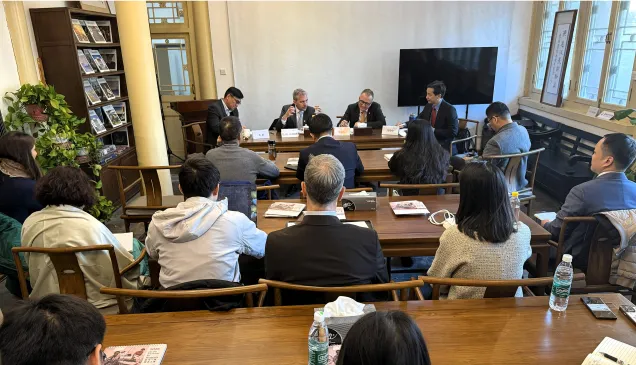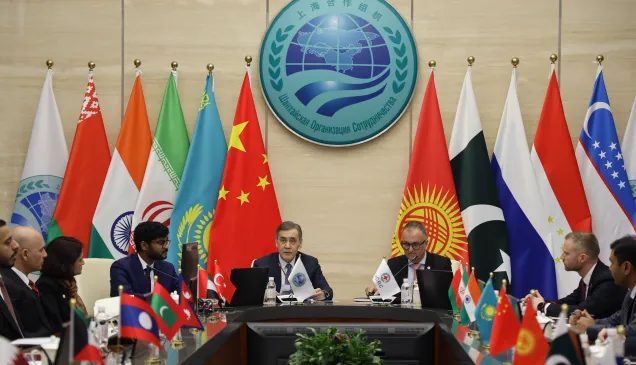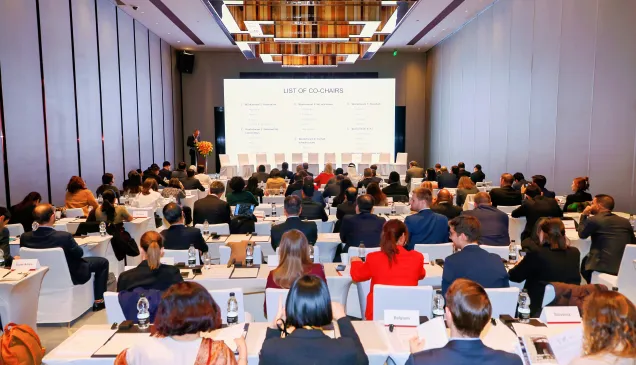“This is the first time the MoEM has organized such a seminar since its establishment in 2018. We have many possibilities for cooperation under the umbrella of the 'Belt and Road Initiative' (B&R). We’re convinced that the MoEM and the ICRC can share inputs from this seminar with other countries along the B&R to strengthen their capacity of emergency response, contribute to the economic and social development of other countries and the peace and prosperity of the international community,” said Liu Weimin, director of the International Cooperation and Rescue Department, MoEM, at the opening of the seminar on 27 May.
China: International seminar shares best practices in managing emergency responses
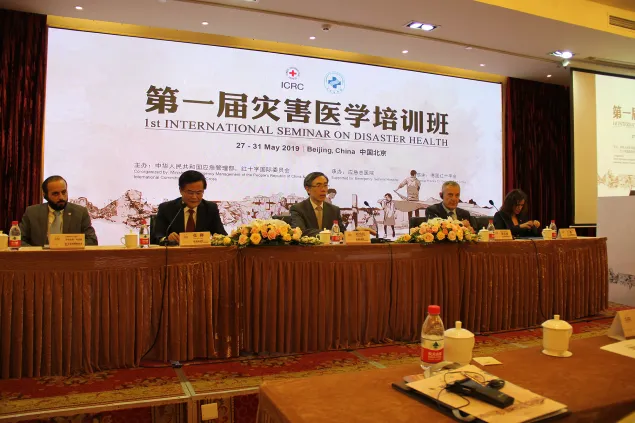
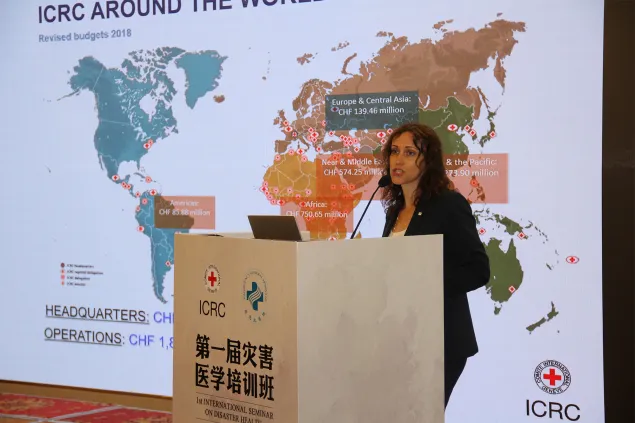
Gwenaelle Ravon, deputy head of the ICRC’s regional delegation for East Asia, introduced the organization’s mission and mandate and their activities in China. She underlined the need to develop a holistic and multidisciplinary approach to emergency response.
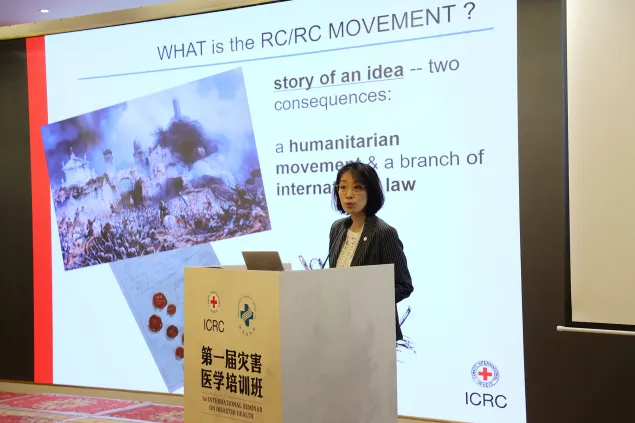
Zhao Qi, deputy cooperation coordinator of the ICRC’s regional delegation for East Asia, gives an overview of the origin and development of the International Red Cross and Red Crescent Movement as well as the different mandates of its components.
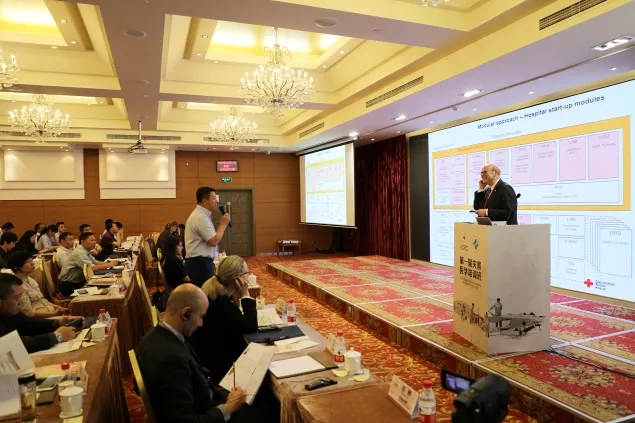
Christof Johnen from the German Red Cross lays out key principles of public health during emergencies and ethics in disaster response. His presentations, which had inputs relevant to the experience of the participants who have worked for major rescue services in China and have been part of international emergency response operations, triggered animated discussions. Zhu Wei, who heads the emergency medical team of the Emergency General Hospital and had worked in Mozambique as part of an international rescue team, said he benefited greatly from the seminar. “It was a great platform for exchanging ideas and integrating experience. We not only learned from international experts but also shared the Chinese experience with the world,” he said.
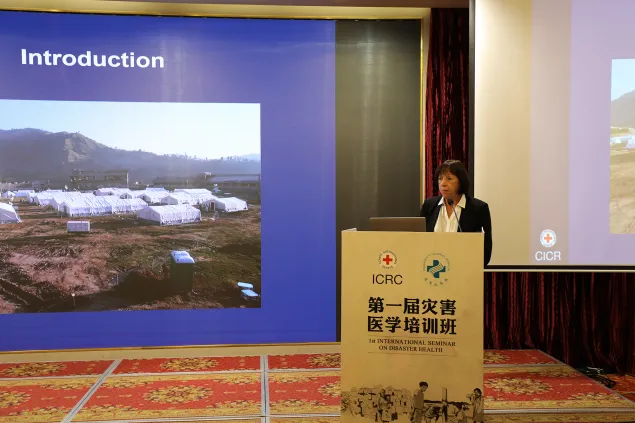
Margrit Schäfer, in charge of hospital management and administration at the ICRC, shares the essentials of the organization’s emergency response and its experience in working with National Societies. She stressed the importance of ensuring the safety of health-care facilities and staff.
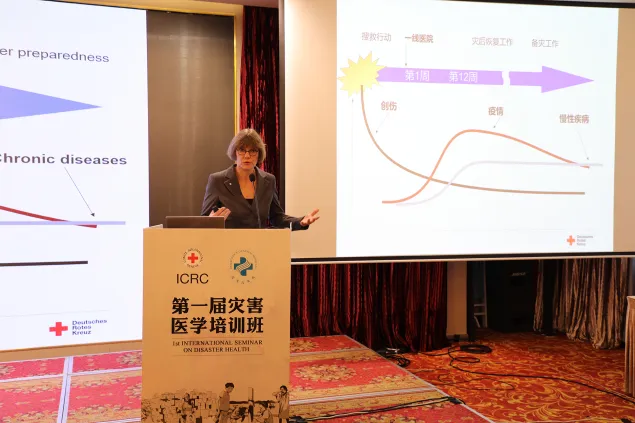
Annette Kohlmeier, who has been part of German Red Cross’ disaster response operations in various countries including China, Haiti and Sierra Leone, shares her experience in the preparation, operation and human resource management of a field hospital.
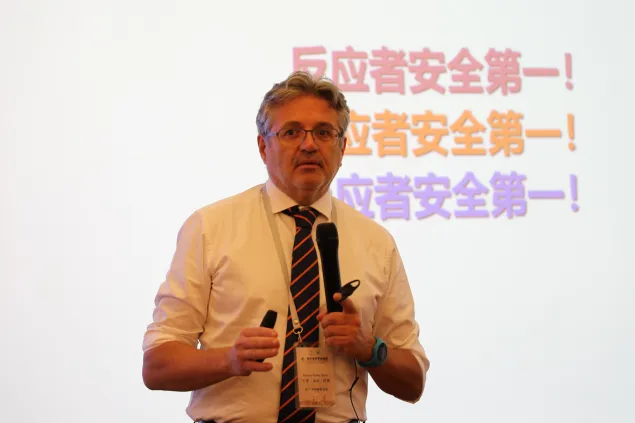
“First responders’ safety first!” Dr. Mauro Dalla Torre, medical adviser to the ICRC’s weapon contamination unit, introduces the role of medical staff in the process of CBRN decontamination. He stressed that first responders should pay special attention to their own safety and avoid secondary injury or cross contamination.
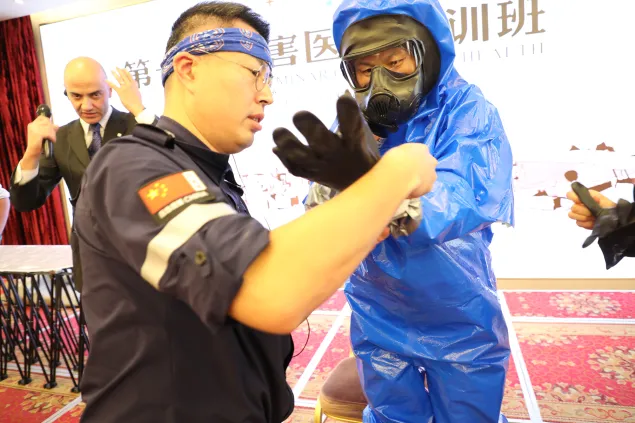
Under the guidance of the ICRC specialists, Du Hailang from Beijing Emergency Rescue Association helps his teammate put on protective gear. Du said he had seen the ICRC experts carrying out rescue operations on multiple occasions but this seminar was a rare opportunity for hands-on learning. “Protecting the environment during rescue operations was one of the topics in the seminar. Based on our field experience, we know that many international organizations even develop clear standards for building toilets. It was exactly the kind of thing we needed to learn,” he said.
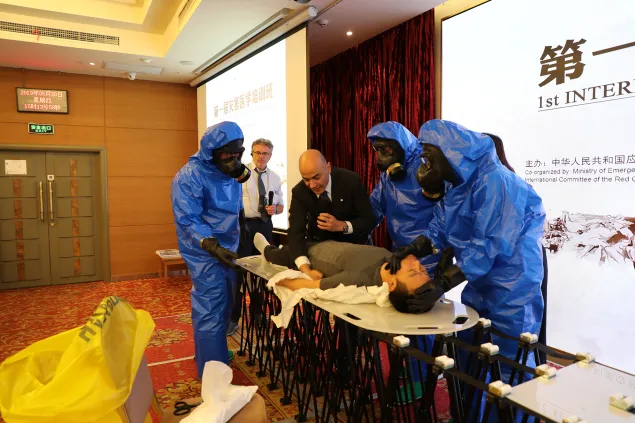
“Those who respond to CBRN events should know how to keep themselves safe while helping victims.” Dr. Johnny Nehme, head of the CBRN sector of the ICRC, guides participants in the procedures of decontaminating a victim.
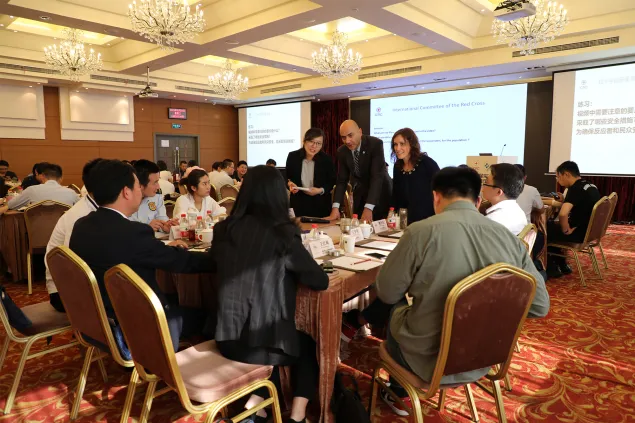
Participants break into small groups and discuss how they could respond to simulated CBRN incidents.
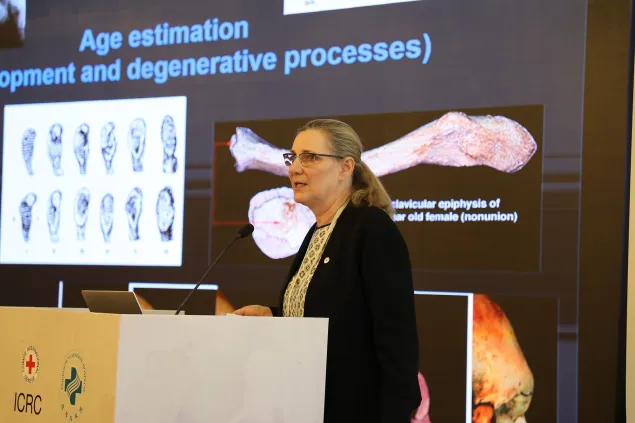
“Emergency responders are the first to handle bodies. Proper management of the dead shows respect to them and to their families and also protects the responders,” said Sherry C Fox, a forensic specialist with the ICRC delegation in Bangkok. “If the responders can collect comprehensive information of the dead and process it scientifically, it will help facilitate the forensic identification afterwards.”
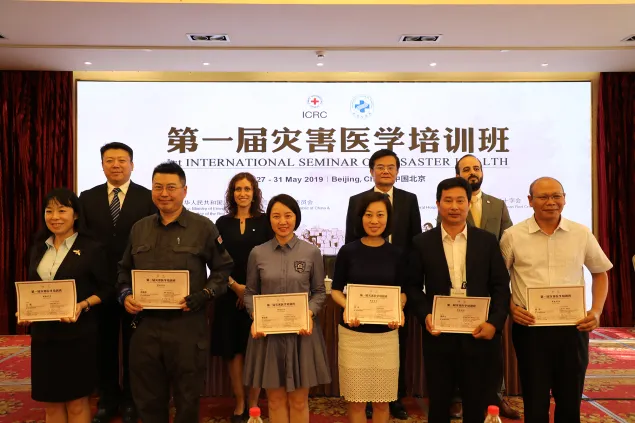
Participants receive certificates at the end of the five-day seminar. At the closing ceremony, Zhang Liu, head of Emergency General Hospital, said this seminar served as an important platform for responders to “broaden their horizons, communicate with and learn from each other and build their capacity”. Ravon, deputy head of the ICRC’s regional delegation for East Asia, stressed that it was essential to integrate disaster preparedness, training of staff, and a multi-disciplinary approach in terms of emergency response. “Such collaboration and sharing of experience could be mutually beneficial for the ICRC and for MoEM’s rescue teams wherever they are deployed.”
Opening up new possibilities of cooperation in responding to emergency situations, the first international seminar on disaster health was jointly organized by the Ministry of Emergency Management (MoEM) of the People's Republic of China and the International Committee of the Red Cross (ICRC). The seminar, supported by the Emergency General Hospital, was held in Beijing from 27 to 31 May. More than 80 participants from 12 institutions affiliated with the MoEM, including the Fire and Rescue Department, Forest Fire Bureau, National Earthquake Response Support Service and Emergency General Hospital, were part of the event.
The sessions focused on improving the skills of rescue teams in responding to health emergencies during disasters and enhancing self-protection capabilities of first line responders. Topics included key principles of public health during emergencies, the setting up and operation of a field hospital, managing the risks associated with chemical, biological, radiological and nuclear (CBRN) hazards and the management of the dead during disasters.

